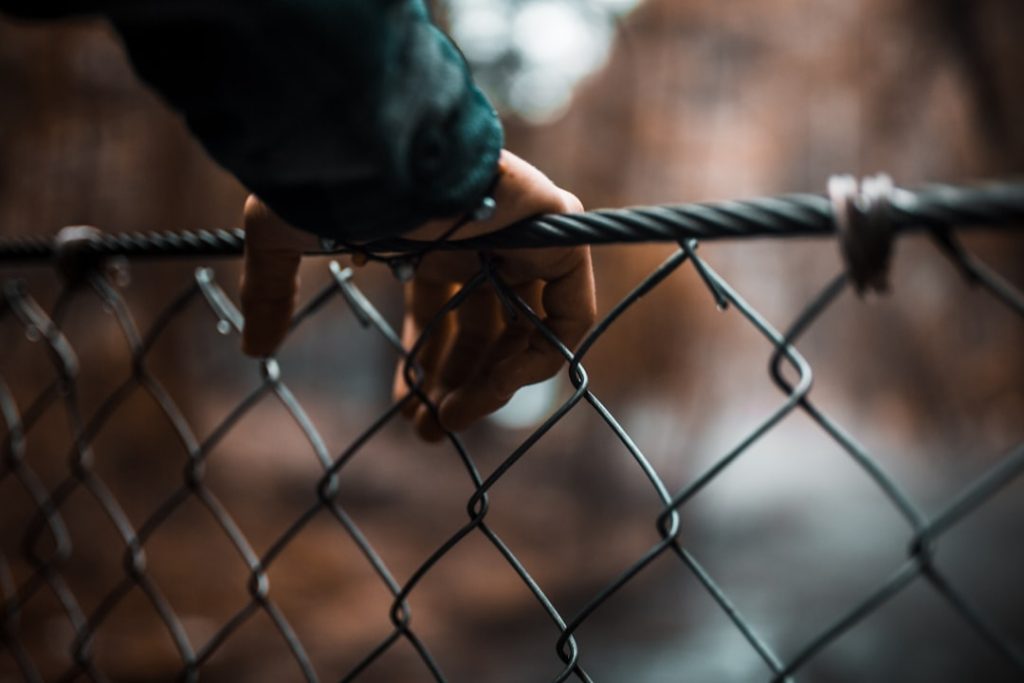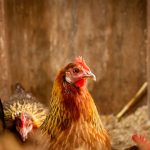Coyotes (Canis latrans) are common predators of chickens and present a significant threat to domestic poultry. These adaptable canines are known for their intelligence and ability to hunt in diverse environments. Coyotes are opportunistic predators that will exploit any available food source, including chickens.
They possess the ability to dig under fences and locate weak points in enclosures, necessitating proactive measures from poultry owners to protect their flocks. Coyotes are primarily crepuscular, with peak activity during dawn and dusk, making these periods particularly hazardous for chickens. They exhibit strong territorial behavior, and once they identify a food source such as a chicken coop, they are likely to return repeatedly.
This behavior underscores the importance of implementing effective protective measures for poultry. Understanding coyote behavior and habits is crucial for developing strategies to safeguard chickens from predation. Poultry owners should be aware of local coyote populations and take appropriate precautions to secure their flocks, particularly during high-risk periods.
Table of Contents
- 1 Chicken Coop Security: Fencing and Enclosures
- 2 Predator Deterrents: Motion-Activated Lights and Alarms
- 3 Guardian Animals: Using Dogs or Livestock to Protect Chickens
- 4 Safe Roosting: Elevated Perches and Secure Nighttime Housing
- 5 Chicken Feed and Waste Management: Minimizing Attractants
- 6 DIY Solutions: Homemade Deterrents and Repellents
- 7 FAQs
- 7.1 What are some items to buy to keep coyotes out of chickens?
- 7.2 How does electric fencing help keep coyotes out of chickens?
- 7.3 What is the purpose of motion-activated lights in keeping coyotes away from chickens?
- 7.4 Why is a predator-proof chicken coop important in protecting chickens from coyotes?
- 7.5 How can guard animals such as dogs or llamas help in keeping coyotes away from chickens?
Key Takeaways
- Coyotes pose a significant threat to chickens and can easily prey on them if not properly protected.
- Secure fencing and enclosures are essential for keeping coyotes and other predators out of the chicken coop.
- Motion-activated lights and alarms can help deter predators and alert you to potential threats.
- Using dogs or livestock as guardian animals can provide an extra layer of protection for your chickens.
- Elevated perches and secure nighttime housing are crucial for keeping chickens safe from nocturnal predators.
Chicken Coop Security: Fencing and Enclosures
Secure Fencing: A Key to Safety
One of the most effective ways to safeguard your chickens from coyotes and other predators is by ensuring that your chicken coop is secure. This involves investing in high-quality fencing that is designed to keep predators out. When it comes to fencing, it’s essential to choose a material that is strong and durable, such as welded wire or chain link. These types of fencing are difficult for predators like coyotes to chew through or break, making them an effective deterrent.
Enclosures: An Additional Layer of Protection
In addition to strong fencing, it’s crucial to ensure that your chicken coop has a secure enclosure that is designed to keep predators out. This can include adding a roof to the enclosure to prevent predators from climbing over the top, as well as burying wire mesh around the perimeter of the enclosure to prevent predators from digging underneath.
Creating a Safe Environment
By investing in high-quality fencing and enclosures, you can create a safe and secure environment for your chickens, protecting them from the threat of coyotes and other predators.
Predator Deterrents: Motion-Activated Lights and Alarms

In addition to securing your chicken coop with fencing and enclosures, it’s also important to consider using predator deterrents to keep coyotes at bay. One effective deterrent is motion-activated lights, which can startle and deter predators when they approach the coop. These lights can be set up around the perimeter of the coop and will turn on when they detect motion, scaring off any potential threats.
Another effective predator deterrent is an alarm system that is designed to detect the presence of predators and alert you to their presence. These alarms can be set up to emit loud noises or even send alerts to your phone, allowing you to take action to protect your flock. By using motion-activated lights and alarms, you can create an additional layer of protection for your chickens, deterring coyotes and other predators from approaching the coop.
Guardian Animals: Using Dogs or Livestock to Protect Chickens
Another effective way to protect your chickens from coyotes is by using guardian animals, such as dogs or livestock, to protect your flock. Dogs are natural predators of coyotes and can be trained to patrol the perimeter of the coop, deterring any potential threats. Livestock, such as llamas or donkeys, are also effective at protecting chickens from predators, as they are known for their territorial nature and ability to defend against threats.
When using guardian animals to protect your chickens, it’s important to ensure that they are properly trained and socialized with the flock. This will help them develop a bond with the chickens and understand their role in protecting them from predators. By using guardian animals, you can create an additional layer of protection for your chickens, deterring coyotes and other predators from approaching the coop.
Safe Roosting: Elevated Perches and Secure Nighttime Housing
Coyotes are most active during the early morning and late evening, making it essential for chicken owners to provide safe roosting options for their flock. One effective way to protect chickens from coyotes during these times is by providing elevated perches inside the coop. Elevated perches allow chickens to roost off the ground, keeping them safe from potential threats like coyotes.
In addition to elevated perches, it’s also important to ensure that your chickens have secure nighttime housing that is designed to keep them safe from predators. This can include using sturdy doors and latches that are difficult for predators to open, as well as adding additional security measures such as predator-proof windows and ventilation. By providing safe roosting options and secure nighttime housing, you can help protect your chickens from the threat of coyotes.
Chicken Feed and Waste Management: Minimizing Attractants

Secure Storage of Chicken Feed
One way to do this is by ensuring that chicken feed is stored in secure containers that are difficult for predators to access. This can help prevent coyotes from being drawn to your property in search of an easy meal.
Proper Management of Chicken Waste
In addition to managing chicken feed, it’s also important to properly manage chicken waste to minimize attractants for coyotes. This can include regularly cleaning up spilled feed and waste around the coop, as well as properly disposing of waste in a way that does not attract predators.
Reducing the Likelihood of Coyote Attraction
By minimizing attractants, you can help reduce the likelihood of coyotes being drawn to your property in search of food.
DIY Solutions: Homemade Deterrents and Repellents
In addition to using commercial predator deterrents, there are also several DIY solutions that chicken owners can use to protect their flock from coyotes. One effective homemade deterrent is using scent-based repellents, such as predator urine or citrus peels, around the perimeter of the coop. These scents can help deter coyotes from approaching the coop, reducing the likelihood of an attack.
Another DIY solution is using visual deterrents, such as scarecrows or reflective tape, around the coop to scare off potential predators. These visual deterrents can startle coyotes and other predators, making them think twice about approaching the coop. By using homemade deterrents and repellents, you can create an additional layer of protection for your chickens, deterring coyotes and other predators from approaching the coop.
In conclusion, protecting chickens from coyotes requires a multi-faceted approach that includes understanding the threat, securing the coop with fencing and enclosures, using predator deterrents, employing guardian animals, providing safe roosting options, managing attractants, and utilizing DIY solutions. By taking proactive measures to protect your flock from these predators, you can create a safe and secure environment for your chickens, allowing them to thrive without the threat of coyotes.
If you’re looking for items to keep coyotes out of your chickens, you may also be interested in learning about the benefits of an A-frame chicken coop. This type of coop provides a secure and comfortable environment for your chickens, helping to protect them from predators like coyotes. Check out this article to learn more about the advantages of an A-frame chicken coop for keeping your flock safe.
FAQs
What are some items to buy to keep coyotes out of chickens?
Some items to consider purchasing to keep coyotes out of chickens include: electric fencing, motion-activated lights, predator-proof chicken coops, and guard animals such as dogs or llamas.
How does electric fencing help keep coyotes out of chickens?
Electric fencing can be an effective deterrent for coyotes as it delivers a mild electric shock when touched, deterring them from attempting to enter the chicken coop or run.
What is the purpose of motion-activated lights in keeping coyotes away from chickens?
Motion-activated lights can startle and deter coyotes from approaching the chicken coop or run, as they are sensitive to sudden changes in light and movement.
Why is a predator-proof chicken coop important in protecting chickens from coyotes?
A predator-proof chicken coop is essential in keeping coyotes out as it prevents them from gaining access to the chickens. This type of coop is typically constructed with strong materials and secure latches to prevent entry by predators.
How can guard animals such as dogs or llamas help in keeping coyotes away from chickens?
Guard animals such as dogs or llamas can help protect chickens from coyotes by patrolling the area and deterring potential predators. Their presence alone can often be enough to keep coyotes at bay.
Meet Walter, the feathered-friend fanatic of Florida! Nestled in the sunshine state, Walter struts through life with his feathered companions, clucking his way to happiness. With a coop that’s fancier than a five-star hotel, he’s the Don Juan of the chicken world. When he’s not teaching his hens to do the cha-cha, you’ll find him in a heated debate with his prized rooster, Sir Clucks-a-Lot. Walter’s poultry passion is no yolk; he’s the sunny-side-up guy you never knew you needed in your flock of friends!







